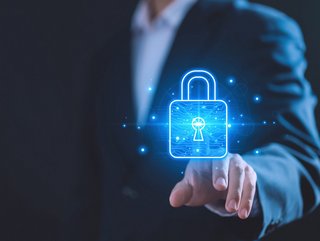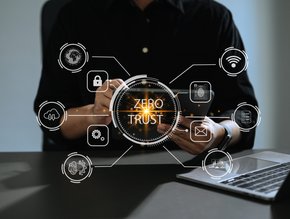Staying safe online starts with these simple steps

Cybersecurity incidents are happening all the time.
Every day, cyber criminals are looking for the best ‘marks’ or ‘targets’ to hit. These bad actors will cast their net as far as possible in order to find their victim, counting on individuals believing that they are not a target.
According to Tim Roemer, Chief Security Officer at the IT Services and Consulting company, GMI: “One of the most important things in cyber security is how quickly you can respond. Criminals nowadays are using social engineering.
“They’re going online. They’re figuring out everything about you so they can guess and accurately answer all of your security questions, and they’ll actually reset your password for you.”
The hackers themselves aren’t concerned with how much money is in someone’s bank account, they want information, money, sometimes both, and want to use you to get into important networks. In order to reduce the chances of falling for any of the scams out there, there are some simple ways in which you can protect yourself online.
Use strong passwords and avoid reusing passwords
Did you know that the most common password is either ‘123456’ or ‘password’?
It goes without saying that the amount of time that we now spend online, means that we often have multiple accounts through multiple different websites, each requiring a different username and password. This therefore makes it easy to become overwhelmed with the vast amount of information we are expected to remember.
However, by using a password manager, you can store all of your passwords easily in one place, meaning that you don’t have to remember them all. However, by doing this it’s imperative that you ensure your master password is strong and memorable, and secure your password manager account with MFA.
Turn on Multi Factor Authentication (MFA)
Multi Factor Authentication (MFA) goes by a number of names: Two Factor Authentication, Multi Factor Authentication, Two Step Factor Authentication, MFA, 2FA, but at the end of the day, they all mean the same thing: opting-into an extra step when trusted websites and applications ask you to confirm you’re really who you say you are.
Multi-Factor Authentication (MFA) is known by a number of different names, such as Two-Factor Authentication (2FA), Multi-Step Authentication, and MFA, but at the end of the day, they all mean the same thing: voluntarily taking an additional step when trusted websites and applications ask you to confirm who you say you are.
Ensure software is up to date
Bad actors will exploit flaws in the system, therefore by updating software on mobile phones, tablets, and laptops, you’re more likely to be protected against potential threats.
Failure to keep software up to date leaves security vulnerabilities unaddressed, creating an entry point for cybercriminals. These vulnerabilities then serve as a weakness that can simplify the process for cybercriminals to introduce malicious software, commonly referred to as malware, into your devices.
Think before you click
It’s important to recognise a phishing email or text message. With the sheer volume of emails that we receive every day, it is easy for a phishing email to slip into your inbox, claiming to be from your bank or phone provider. However, if you see a link that looks a little suspicious, perhaps a website you use asking for you to verify personal information by ‘clicking here’, it’s likely a phishing scheme.
Nowadays, many of these schemes look incredibly convincing, as cyber criminals are becoming more sophisticated. This is leading to more and more people falling for these scams, therefore it is crucial that if you see a link that you do not recognise, trust your instincts before you click.
******
For more insights into the world of Cyber - check out the latest edition of Cyber Magazine and be sure to follow us on LinkedIn & Twitter.
Other magazines that may be of interest - Technology Magazine | AI Magazine.
Please also check out our upcoming event - Cloud and 5G LIVE on October 11 and 12 2023.
******
BizClik is a global provider of B2B digital media platforms that cover Executive Communities for CEOs, CFOs, CMOs, Sustainability leaders, Procurement & Supply Chain leaders, Technology & AI leaders, Cyber leaders, FinTech & InsurTech leaders as well as covering industries such as Manufacturing, Mining, Energy, EV, Construction, Healthcare and Food.
BizClik – based in London, Dubai, and New York – offers services such as content creation, advertising & sponsorship solutions, webinars & events.






